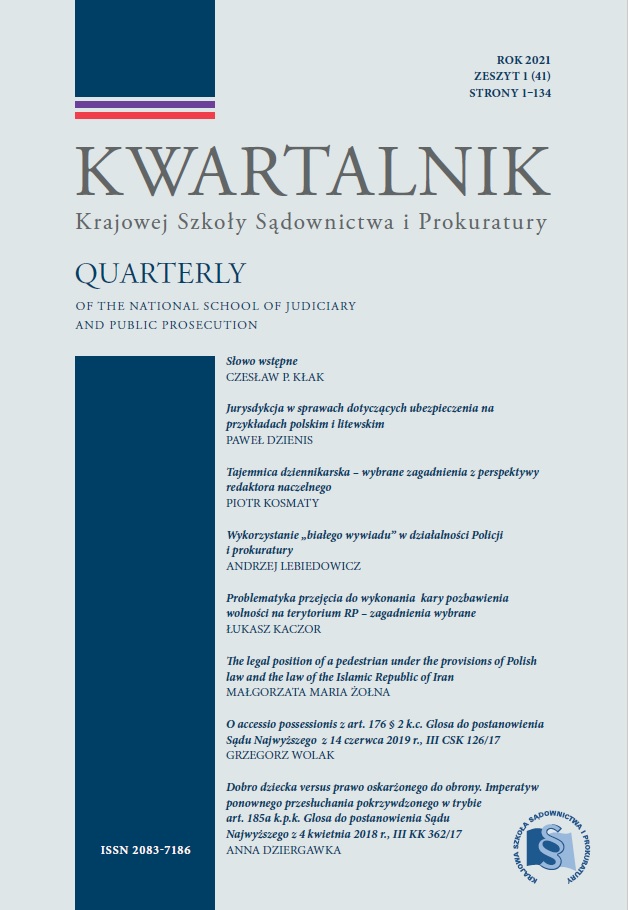Psychological and legal aspects of protection against violence in the world of work. Is the special protection of certain groups of employees necessary?
|
Kwartalnik Krajowej Szkoły Sądownictwa i Prokuratury * 2019* tom 35* zeszyt 3* s. 101-109* ISSN 2083-7186 Psychological and legal aspects of protection against violence in the world of work. Is the special protection of certain groups of employees necessary? Psychologiczne i prawne aspekty ochrony przed przemocą w świecie pracy. Czy konieczna jest specjalna ochrona określonych grup pracowników? Dr Magdalena Najda, adiunkt w Wyższej Szkole Administracji Publicznej im. Stanisława Staszica w Białymstoku, wykładowca w Szkole Wyższej Psychologii Społecznej w Warszawie i w Krajowej Szkole Sądownictwa i Prokuratury, członek międzynarodowego stowarzyszenia antymobbingowego – the International Association on Workplace Bullying & Harassment (IAWBH). Mgr Aleksandra Rutkowska, sędzia Sądu Rejonowego dla Wrocławia Śródmieścia we Wrocławiu; odbyła delegację w Izbie Cywilnej Sądu Najwyższego (2014) oraz Europejskim Trybunale Praw Człowieka (2012-2013); uczestniczka międzynarodowych staży oraz konferencji; nagrodzona przez Międzynarodową Komisję Prawników za swoją pracę w konkursie pod tytułem „Sędzia Europejski 2010”; autorka glos oraz artykułów dotyczących problematyki poruszanej w orzecznictwie Europejskiego Trybunału Praw Człowieka. Data publikacji: 2019-09-30 URL: https://www.kssip.gov.pl/pobierz_plik/2019-3_35_-_psychological.pdf SUMMARY: Authors try to analyze the problem of special protections against mobbing for some groups of employees, from legal and psychological perspectives. From psychological point of view, equal protection of all employees regardless of personality, minority status or socio-demographic characteristics seems to be the best solution, because there is no empirical evidence that mobbing poses a threat or danger to any particular group of employees. Research rather suggest it is the organisation and its climate, rather than any predispositions of potential victims that are responsible for the appearance of mobbing in the workplace. At the same time, it seems that legal systems should aim to formulate anti-mobbing regulations in the most universal way so that every victim can find a way to proceed with their claim. Making the definition of violence at work more detailed is not warranted by the process of pursuing claims or prevention of intimidation and harassment, as the catalogue of reasons for violence in the workplace is still open. Besides, a better definition of what it takes to be a victim of mobbing will hardly affect the compensation. Key words: mobbing, Labour Code Bibliographic Citation: NAJDA, M., RUTKOWSKA, A. Psychological and legal aspects of protection against violence in the world of work. Is the special protection of certain groups of employees necessary?, Kwartalnik Krajowej Szkoły Sądownictwa i Prokuratury. 2019, t. 35, z. 3, s. 101-109. ISSN 2083-7186. |
|




